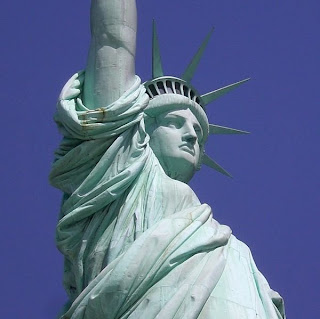
Thomas Jefferson made it clear in the Consti-tution’s preamble that it was written to, among other things, “se-cure the Blessings of Liberty to our-selves and our Posterity.”
To have liberty means to be able to act without undue hindrance or restraint. To secure something means to lock it into place.
With that in mind, can anyone doubt that the central objective of Thomas Jefferson and the other Founders was to keep Americans free forever of unnecessary and unreasonable government interference?
This is not an obscure detail in the Declaration of Independence, the Constitution or the Bill of Rights. It is the all-encompassing and pervasive theme around which our entire system of government is built. Therefore, it is surprising to a great many of us that it has escaped the attention of such a large number of our recent and current leaders in Washington.
Keeping government small and innocuous, after all, is why our Founding Fathers went to the trouble of drawing up a written contract between citizens and government. That is why they erected so many safeguards around our precious liberties and set up so many barriers to government expansion.
They knew, as we ought to know, that ambitious and unscrupulous men and women live in every generation and every age, men and women who pose as champions of the people by offering them insubstantial and fleeting security in exchange for priceless and hard-won freedoms.
Over the years members of congress, presidents and supreme court justices, while serving in their official capacities, have acted in ways that have seriously diminished the rights of citizens while enlarging the power and scope of government.
I suppose we could be lenient and excuse their conduct by saying these decisions undoubtedly were made in ignorance. But are members of congress, presidents and supreme court justices supposed to be ignorant? When they seek or accept these high offices do they not lead us into the belief that they are the most worthy, wise and eminently qualified citizens in all the land? And if their assessment of themselves is correct, is it unreasonable to assume that they possess at the very least some small understanding of and appreciation for our Constitution, the document upon which our entire philosophy of government rests and which they swear before their fellow citizens and God to uphold?
Admittedly, correctly interpreting the Constitution could in certain instances and cases prove difficult, but should there ever be any doubt in anyone’s mind about what the Founders wanted most for American citizens, among them their own children and grandchildren? Doesn’t the whole tone and tenor of everything written by our Founders, beyond their mere words, resound with liberty?
Would it be asking too much then that when members of congress are debating and enacting a law, a president is executing a law or a supreme court justice is interpreting a law that they keep their eyes squarely focused upon this one preeminent fact--that our Constitution was written to secure the blessings of liberty?
No comments:
Post a Comment